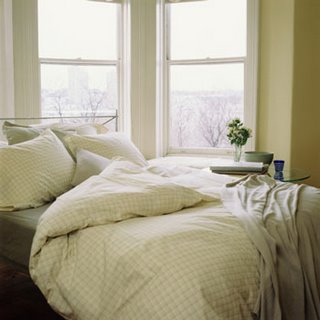2500 && strlen($resultsString) < 4000) { ?>
No caffeine after lunch. Caffeine stays in your system for about 6 hours and can even cause sleep problems up to 10 to 12 hours after drinking it!
Avoid alcohol too close to bedtime. Although alcohol may help you fall asleep faster, it’s notorious for causing wakefulness only hours later. In other words, you may conk out but you can bet in a couple hours you’ll wake up and find it close to impossible to fall back asleep.
No computer or TV within 1 hour of bedtime. Lights from the TV and your computer’s monitor are stimulants to your brain and will keep it alert a good hour after these devices are turned off.
Take a warm bath before going to bed. The warm water will affect your circulatory system and ease your body into restfulness as well as alleviate tension.
Stretch out all your muscles. It not only feels good but stretching conditions out the knots and tightness caused by daily stress and helps prevent knotting or cramping that otherwise can occur in the night.
 Write down your frustrations and problems. Writing down all your pressing issues and frustrations as well as writing down any ideas on resolving them at bedtime is a mental and physical release. Get it out of your head and onto paper so you don’t keep yourself up stressing about it, and rest assured that your dreams will help you sort things out. That’s what they are there for.
Write down your frustrations and problems. Writing down all your pressing issues and frustrations as well as writing down any ideas on resolving them at bedtime is a mental and physical release. Get it out of your head and onto paper so you don’t keep yourself up stressing about it, and rest assured that your dreams will help you sort things out. That’s what they are there for.
Keep your bedroom cool and dark. Every night around midnight your body temperature naturally drops about one degree. Your body cools down to promote inactivity and sleep. Give it a head start by keeping your bedroom at a nice cool temperature. And have your bedroom as dark as possible so that you experience the daytime/nighttime cycle. Light may disrupt your body's normal circadian rhythm and signal you to wake up.
Once you've mastered the fine art of getting good sleep, you'll not only feel better, look better and perform better, you'll also start having more dreams that you'll want to understand.....
